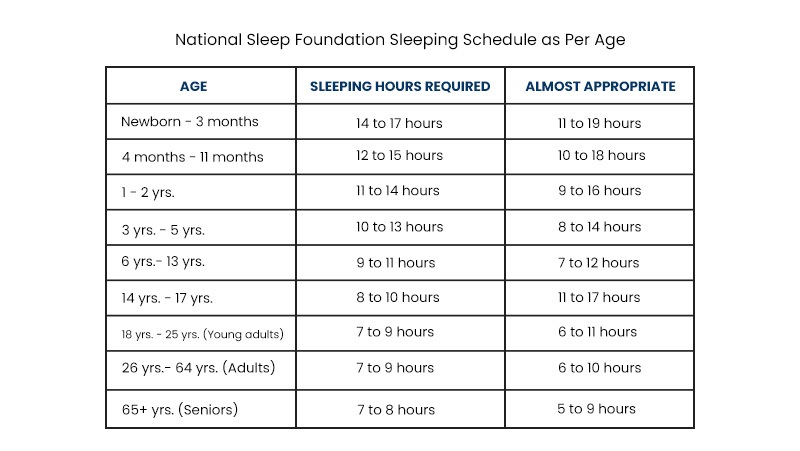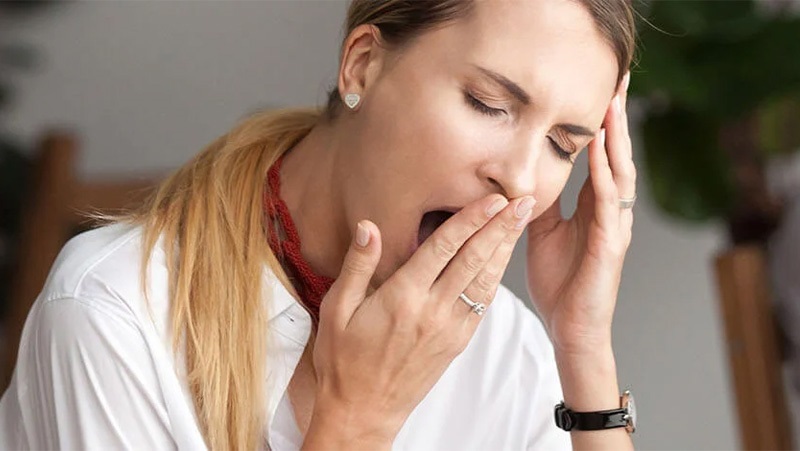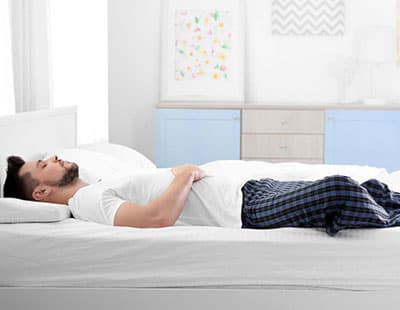Whether you are an early riser or a night hawk, the struggle between your desire to rule the world and your body's urge for some power naps is real. We all know how crucial it is to get a good night's sleep for a healthy body and active mind. But let's admit it—there’s a huge difference between speaking and actually achieving it.
No matter our everyday schedule, we've all been through it. Whether it's binge-watching our favorite shows, or just rolling and turning in bed, wondering if those few precious hours of sleep will help us keep going for the next day. But, the debate here still lies unattended about whether or not 6 hours of sleep is enough for you.
So, buckle up, because we're about to dive deep into the all-time long sleep debate and find out what professionals have to say- if those six hours are truly enough to jump-start your day.
Let's Take a Look at What Sleep Professionals Have to Say
First things first, to maintain positive mental and physical health, the actual number of hours recommended by sleep professionals for adults is around 7-9 hours. Yes, you read that right—seven to nine! Studies have also proven that obtaining a solid 7-9 hours of sleep results in a longer life span.
The amount of sleep required not only changes with age but also varies from person to person. Where an adult may typically need 7-9 hours of sleep, an infant at the same time may considerably require more snoozing time.
Therefore, The National Sleep Foundation has introduced an all-new sleeping schedule that categorizes your sleeping hours as per your age. The plan aims at guiding individuals toward a clear idea of whether 6 hours of sleep is enough. It has also prepared a sleep routine that leads to one's overall well-being.

The Sleeping Secret: Quantity Vs. Quality
The sleeping pattern of an individual involves two secrets: how long we sleep (that's the sleep quantity) and how deep our sleep is (that's the sleep quality). Both of these, i.e. the sleeping quantity and quality are super important.
When we take a nap, our sleep goes through a roller coaster ride consisting of different stages. Each stage helps fix our body cells and gets us ready for the coming day. To wake up feeling super refreshed, we need to go through all these stages without too many interruptions. If something interrupts our sound sleep—it can mess with how we feel the next day.
But the tricky part here is to actually figure out how much we've exactly slept. Some might think they've slept more or less than they really have. And guess what? We might not always know if our sleep was top-notch or not.
Here's an easy trick to know if you slept well: just see how you feel during the day. A good amount of sleep will likely make you feel energized and fresh. However, not getting enough sleep, might make you feel tired without doing much. It's basically your body requesting more rest.
Therefore quality and quantity play a major role when you question yourself “Is 6 hours of sleep enough for me to kickstart my next day?”
Reason You Are Not Getting Enough Sleep
Several circumstances make it challenging for us to get enough sleep. It could be because of our daily busy schedule, stress level, or mental or physical discomfort.
A few of them include:
- Excessive Intake of drugs, alcohol, or caffeine
- Having small/young kids
- Busy work schedules / Nightshifts
- Medical Conditions like Insomnia, restless leg syndrome, or sleep apnea
- Anxiety or depression
- Travel demanding job
The Extreme Side Effects of Getting Only 6 Hours of Sleep

The after-result of sleeping hours differs from person to person. Some can function like a superhero even with a bare minimum of sleep, while others turn into zombies after anything less than eight hours. Also, It's not just the quantity but most importantly the quality of your sleep that matters.
When you consistently cut back on sleep, your body and brain don't get the chance to fully recharge itself. It's like using a halfway-charged phone that might work for a while, but it's not sustainable in the long run.
Chances are you are dealing with sleep deprivation if you're only clocking in six hours of sleep every night. This might come up to you in the following ways:
- Dragging yourself out of bed in the morning becomes the task for the day.
- Afternoons become a battleground between you and your drowsiness.
- Always searching for a secret nap zone.
- Weekends suddenly become a marathon of catching up on lost sleep.
But that’s not just it. Getting the bare minimum of sleep can lead to some serious health issues, like-
- Putting on those extra pounds / Obesity
- Dealing with high blood pressure
- Inviting heart problems
- Depression
- Diabetes
- Wrestling with anxiety
- Waving war against insomnia
In short, more sleep equals a healthier and happier you!
Did You Know? Getting the amount of sleep than that of what is required may affect children differently. Little ones who fail to get enough sleep might seem to become restless or hyperactive. They might also face problems in paying attention in school due to mood swings, impulsiveness, or even sadness.
Tips On Getting a Good Night Sleep
Just like any other routine, be it your morning or skincare regimen, good enough sleep also requires a healthy bedtime sleeping routine. Here are a few simple tips for you to follow to sleep better:
- Stick to a routine: Have a regular sleep schedule, even on weekends.
- Create a comfy sleep space: Keep your bedroom cool, dark, and quiet, with a cozy mattress and pillows. Experts also recommend using cotton side-sleeper pillows for a better sleeping experience.
- Relax before bed: End your day with calming activities like reading or a warm bubble bath.
- Limit screen time: Avoid devices like phones, TVs, or laptops at least 30 minutes before bedtime.
- Watch your naps: Keep your daytime naps shorter, approximately for only 30 minutes, in the day.
- Stay active: Try to exercise regularly, spend time outdoors, and also get enough sunlight in the morning.
- Mind what you consume: Avoid heavy meals, cigarettes, alcohol, and even caffeine just before bedtime.
Remember those weekend night outs can really mess up your natural sleep cycle, therefore try to be consistent with your sleep schedule. It's absolutely normal to take about 15 to 20 minutes to fall asleep after turning off the lights, so do not worry or stress about it.
6 Hours of Sleep Is Not Enough? Improve Your Sleep Quality with Eli & Elm
Lastly, to wrap things up, remember that just getting 6 hours of sleep might not be enough for most of you. It's important to make sure you're getting the right amount of sleep every night, to stay healthy and feel your best.
Eli & Elm believes that a good night's sleep opens the doorway to a healthy mind and body. It not only boosts your mood but also keeps you active all day long. Also, following a consistent sleeping routine can do wonders for your behavior and overall quality of life.
Our widely popular comforters and professionally recommended side sleeper pillows will help you get those wonderful and much-needed 7 to 9 hours.
So why wait, Contact us now!
Sources:
Sleepopolis: Is Six Hours of Sleep Enough? Here’s What Experts Say
Sleep Foundation: Is 6 Hours of Sleep Enough?





















